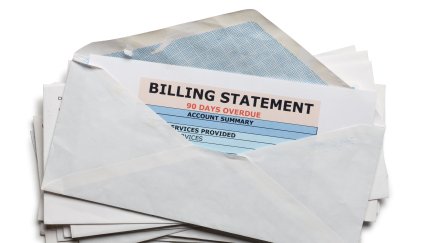Accounts Receivable & Collections for Condos and HOAs
 Collections for condos and HOAs require you to consider this, The Fair Debt Collection industry has established an objective test based on “the least sophisticated consumer”. The purpose of this is to protect consumers. Some are Harvard Graduates and others are less educated and there are always the very clever.
Collections for condos and HOAs require you to consider this, The Fair Debt Collection industry has established an objective test based on “the least sophisticated consumer”. The purpose of this is to protect consumers. Some are Harvard Graduates and others are less educated and there are always the very clever.
So who is this “least sophisticated consumer?” How does this apply to accounts receivable collections for Condos and HOAs? One court explained that, “even the least sophisticated consumer can be presumed to possess a rudimentary amount of information about the world and a willingness to read a collection notice with some care.”
When considering collections for condos and HOA I suggest that any entity that has been given the mandate to collect the fees and engage an owner in the collections process use this standard. Do not assume that they (owners) know how much is owed to the association but rather put it down in a very simple easy to read statement of account. Condominiums and HOAs have got to stop relying on coupon books. Advise owners monthly the amounts they owe. These amounts change due to circumstances such as late payments, fines & violations and special assessments. Statements to unit owners are the key to working with and achieving the standard by which a business will be able to communicate with “the least sophisticated consumer.”
When a unit owner becomes late the worst policy is allowing this delinquency to fester. You must act fast because it will only get worse until you have a crisis. The first step is notifying a delinquent owner within a week after the grace period has passed. In today’s electronic age we have multiple ways of making communicating such as email (if the owner has opted in to receive email from the association), text messaging (opt in also required), telephone calls (how hard is it to pick up a phone) and finally a good old fashion letter in the mail (both registered and regular). Get the word out and get the work out fast to the owner that a payment is due. This is how collections for condos and HOAs should work.
If there is no response to these “courtesy” communications then it’s time to take more serious action. Here is when a board of directors needs to make decisions. Do you send the file to an attorney in order to litigate an association foreclosure or do you send the file to a licensed professional collection agency? The board must weigh out the costs, objectives, possibilities and what they hope to accomplish. Of course the goal is to obtain payment but there are many ways to get to that place. If the path you take is litigation is the association prepared to take a property and make it into a rental unit because that is the only way you can recover your money if you foreclose. If the board is prepared to engage a process that is merit based, will make outbound phone calls, send demand letters and report delinquencies to credit bureaus then that is the route they should take. Consider all the paths you can take before you decide how you will handle your collections for Condos and HOAs.

Tags: assessment collections, Assessment collections for condos, assessment collections for hoas, Collection agencies for condos, condo collection agency, hoa delinquencies, Home owner associations, increased maintenance fees, innovative collection programs, maintenance fee collections, maintenance fee recovery condos, maintenance fee recovery hoas, neighbors helping neigbors in community associations, Snap Collections, snap collections for community associations, uniform collection policy condos, uniform collection policy hoa
